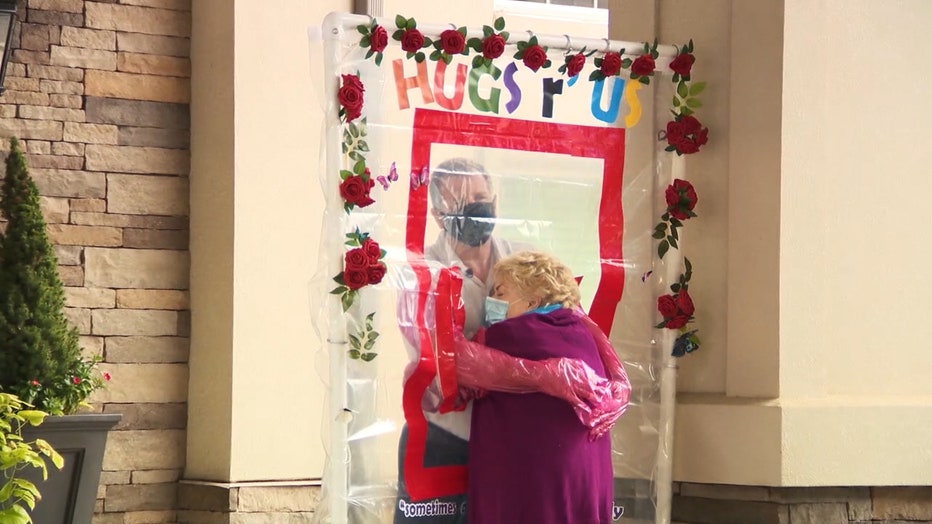Anxiety, comfort and support: How the pandemic impacts seniors, caregivers

Stresses among seniors, caregivers during pandemic
A year without hugs or up-close interaction has been difficult for seniors and their caregivers. While that has brought some added anxiety, there are resources to help cope, along with comfort and support.
TAMPA, Fla. - Getting a hug -- any way you can -- has been a big deal in a time of social distancing, especially for seniors.
"I think anxiety for many people has absolutely increased, wanting to do the right thing not knowing exactly what the right thing is," explained Meredith Grau, the director of clinical services at the Crisis Center Of Tampa Bay. "But anyone who is in the vulnerable populations...seniors or people with medical conditions, that make them a greater risk certainly might be more fearful or anxious to do certain things they used to engage in."
And the connection has meant just as much for their caregivers.
"I talked to someone the other day who was just so relieved to give their parent in the assisted living facility a hug and how great that felt," said Grau.
MORE: ‘It’s OK to not be OK’: During pandemic, more seek help with mental health
Those moments can become emotional.
"To have a hug is huge. People say I saw my mother yesterday and I got to comb her hair and just weeping", said Linda Burhans, who offers support for caregivers and their loved ones through her Connecting Caregivers radio show and support groups. "They say people die from COVID. People die from isolation. People die from not touching each other."
"For some of our seniors," Burhans added, "the decline will not get better and that is a big stress for the caregivers. Caregivers feel guilty and it was totally out of their control."

Helping kids struggling with mental health
Anxiety and depression looks different for everyone – including kids. Experts explain how to identify early signs of mental health issues in children and how counselors are helping them better understand their feelings.
READ: Isolation, uncertainty taking toll on children’s mental health, experts say
When "trying to do the right thing" during the pandemic, it also gives rise to the feeling of guilt.
"We talk about that sandwich generation and that unbelievable guilt that they had because they couldn't do as much as they wanted with their family members and at the same time being so frustrated because their family members were upset," said Clara Reynolds, the President and CEO of the Crisis Center of Tampa Bay.
And now that loved ones are physically reuniting, Burhans suggests engaging seniors in something they love to lift their spirits.
"Finding a purpose," she said. "We can find a purpose very easily we just have to think of what the person did before and what makes them happy."

But caregivers need to remember their happiness is important too.
"Caregivers think that many times asking for help is being weak," Burhans said. "No, asking for help is being strong and I say to caregivers, it may sound a little harsh but when you don't take care of yourself, you're doing a disservice to your loved one. I implore caregivers to care for themselves to get into a support group and to acknowledge they're not alone."
Anyone in need of help can call the Crisis Center of Tampa Bay's 211 call center at any time. For COVID-19 emotional support you can call 1-844-MyFLHLP.
For more information about the Crisis Center of Tampa Bay, head over to their website.
For more information about Linda Burhans and caregiver resources, click here.

